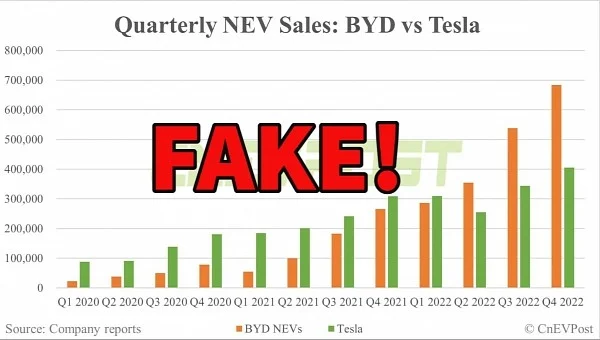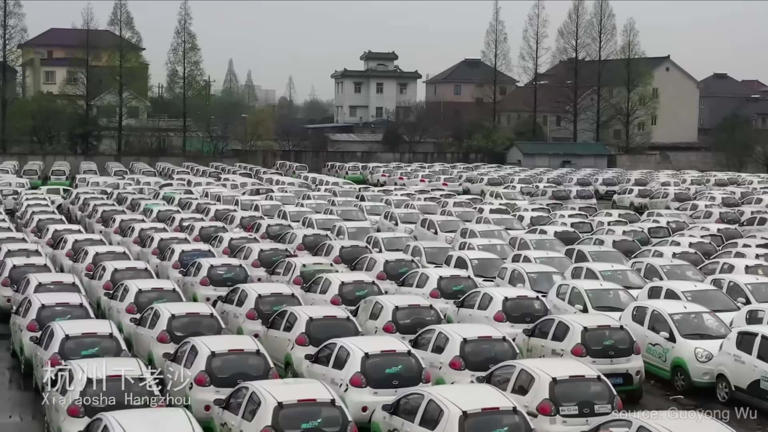- Joined
- Mar 11, 2013
- Messages
- 13,855
- Points
- 113

https://www.autoevolution.com/news/...rs-real-sales-could-be-much-lower-210761.html
Published: 22 Feb 2023
Chinese carmaker BYD has had impressive sales results in the past year, leapfrogging other carmakers. These results are now questioned, as people discovered BYD may not have sold all its vehicles to real customers. This was evidenced thanks to discrepancies between insurance data and BYD’s sales reports.
BYD, one of the biggest carmakers in China and one of Tesla’s major suppliers, has ballooned over the course of the past two years. Until 2021, the Chinese carmaker barely sold 50,000 cars in a quarter. Starting from there, the young company grew exponentially. The numbers are impressive whether you look at battery-electric vehicles or the so-called “new-energy vehicles” (NEVs), which include plug-in hybrids. BYD abandoned pure ICE production a while back, so there’s nothing to report on that front.
BYD’s growth has impressed investors and competitors alike, with Warren Buffett’s Berkshire Hathaway taking a huge chunk of the company’s shares in 2008. Nevertheless, the legendary investor must’ve spotted something off about BYD’s business because he started dumping shares about the same time BYD results went through the roof. Berkshire Hathaway’s position in BYD has been trimmed from over 20% in August 2022 to less than 14% in January 2023.
On the contrary, Charlie Munger, a longtime Warren Buffett investment partner, is bullish on BYD, claiming that the Chinese company “is so much ahead of Tesla in China, it’s almost ridiculous.” He might want to reconsider his position because rumors from China indicate that the NEV carmaker might not report accurate sales data. BYD reported sales of 1.86 million vehicles in 2022, but insurance data (equivalent to registrations in other markets) were 260,000 lower. Some of them (56,000) were exported, leaving BYD more than 200,000 vehicles short of its own reports.
The discrepancy is supported by used-car dealers in China, who said many brand-new BYD cars had been dumped on the market. According to Charles (@CharlesWBoy), one second-hand dealer has many BYD Han cars in its inventory, with less than 50 km (32 miles) on the odometer. They all bear an insurance registration date of December 30, 2022. Although the price of new cars is 280,000 yuan ($40,000), they are now sold at 220,000 yuan ($32,000). The dealer bragged in a video that he would receive more BYD cars when the current stock clears.
According to sources familiar with such practices, Chinese companies use “affiliate companies” (shadow companies) to buy their cars and count the transaction as sales. After the insurance registrations, these vehicles are dumped in the used-car market to artificially boost sales. According to Ray (@ray4tesla), Chinese carmakers use this strategy to clear up excess inventories so that they can report “shiny sales.” Not only do sales benefit from this practice, but carmakers can also claim EV credits before expiration. The credits offset some losses considering the vehicles are sold at lower prices.
While this practice is questionable, BYD is not the first and certainly would not be the last company to use it. Other companies in China, like Xpeng, have done this, and even western carmakers used similar tactics. Volkswagen, for instance, reported a huge uptick in ID.3 sales at the end of 2020. Nevertheless, the cars were sold to dealers to capitalize on carbon credits and avoid emissions penalties. They were then re-sold as used cars, even though they were riddled with software problems at the time.




